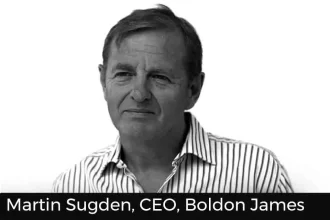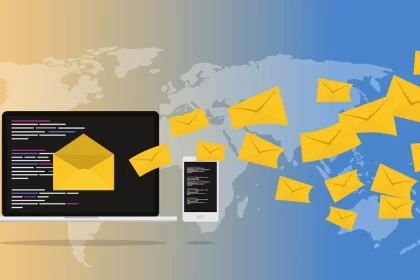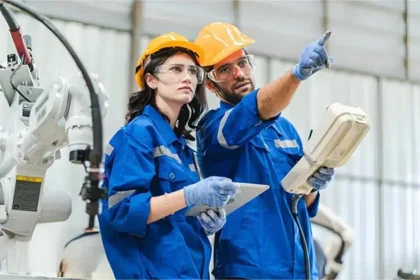Music festivals and concerts are thrilling events that bring together thousands of people to enjoy live performances and celebrate their shared love for music. However, behind the scenes, organizing a successful music festival or concert requires meticulous event planning. From selecting venues and booking artists to managing logistics and ensuring audience satisfaction, the role of event planning in music festivals and concerts cannot be overstated. Well-executed planning enhances the overall experience, turning a musical gathering into an unforgettable event.
In this blog, we will explore how event planning enhances music festivals and concerts, focusing on the critical aspects that contribute to their success, including artist management, logistics, attendee experience, and safety.
Why Event Planning is Key to a Successful Music Festival or Concert
Discover how to start a party planning business that thrives by organizing unforgettable music festivals and concerts.
1. Selecting the Perfect Venue
The venue is one of the most important elements of any music festival or concert. It sets the tone for the entire event, influences the audience’s experience, and determines logistical considerations such as sound quality, seating arrangements, and crowd management. Event planners must carefully select venues that align with the theme and size of the event.
For music festivals, venues often range from outdoor spaces like parks and beaches to more unconventional locations such as rooftops or desert landscapes. For concerts, event planners may consider arenas, theaters, or intimate club settings. The venue’s capacity, accessibility, and amenities are all key factors in making sure that the space can handle the number of attendees while providing a comfortable environment for the audience.
A successful event planner ensures that the venue is equipped with appropriate facilities such as restrooms, food and beverage stations, and safety measures. Additionally, factors like parking, transportation options, and nearby accommodations are considered to make attending the event convenient for guests.
2. Booking and Managing Artists
One of the core functions of event planning in the music industry is artist booking and management. Choosing the right performers is crucial to the success of any music festival or concert, as they are the main attraction. Event planners work closely with artists, managers, and booking agents to secure performers that align with the event’s theme and target audience.
Negotiating contracts, managing artist schedules, and coordinating with sound engineers and stage managers are all part of the artist management process. Event planners ensure that the artists’ requirements, known as “riders,” which might include specific technical setups or hospitality needs, are met to ensure smooth performances.
By strategically curating a lineup of artists that complement one another and cater to the audience’s tastes, event planners help create a cohesive and enjoyable festival experience. The planner’s ability to handle artist logistics efficiently allows musicians to focus on their performances, resulting in a better experience for both the performers and the audience.
3. Logistics and Operations Management
Event planning also involves managing a range of logistical aspects, including sound and lighting equipment, staging, and ticketing. Efficient logistics ensure that the event runs smoothly and that all elements come together seamlessly.
A. Sound and Lighting
Sound and lighting are fundamental to creating an engaging atmosphere at music festivals and concerts. Event planners work with technical teams to ensure that the sound system is appropriately calibrated for the venue size, ensuring that every audience member can enjoy the music without distortion or volume issues. For outdoor festivals, sound considerations may include wind direction and potential noise complaints from surrounding areas.
Lighting design is equally important, as it enhances the mood and visual appeal of the performances. The right lighting can elevate the concert experience, adding drama, energy, or intimacy to the performances, depending on the artist’s style.
B. Stage Design and Production
For festivals and concerts, stage design and production are critical components of the overall experience. Event planners oversee the construction of stages, ensuring they are large enough to accommodate performers and their equipment. The stage setup also needs to be optimized for visibility, so that the audience, regardless of where they are in the venue, has a clear view of the performance.
Event planners also coordinate with production teams to integrate multimedia elements, such as video screens, live feeds, or pyrotechnics, to enhance the visual and auditory experience.
C. Ticketing and Entry Management
Managing ticket sales, entry points, and crowd control are important logistical tasks. Event planners use digital ticketing platforms to streamline the purchase process and may implement systems for VIP access, early bird tickets, or general admission passes.
Additionally, embracing technology like an online QR code generator can greatly enhance event logistics. QR codes simplify everything from ticketing to entry management, providing an efficient way for attendees to access events seamlessly.
At the event, entry points need to be well-organized to avoid long lines and bottlenecks, which can frustrate attendees. Event planners coordinate with security and ticketing staff to ensure that check-ins are efficient, using technology such as QR codes and wristbands to facilitate easy entry.
4. Enhancing the Attendee Experience
The attendee experience is at the heart of event planning for music festivals and concerts. Event planners strive to create memorable experiences that keep fans coming back year after year. Enhancing the attendee experience involves going beyond the music to create an immersive environment that delights the senses. For example, themed decorations, such as Christmas flower arrangements, can transform the venue during holiday events, adding a festive touch that resonates with the audience.
A. Food, Beverage, and Merchandise
Catering to the needs of attendees includes providing a diverse range of food and beverage options. Event planners often collaborate with local food vendors, breweries, and food trucks to create a curated menu that reflects the event’s culture and location. Offering a variety of dietary options, including vegan, gluten-free, and vegetarian meals, ensures that all attendees feel included.
Additionally, merchandise sales are a significant part of the concert or festival experience. Event planners work with vendors to create well-organized merchandise areas where attendees can purchase event memorabilia, such as T-shirts, posters, and artist-branded items. These offerings not only enhance the fan experience but also generate additional revenue for the event.
One fan favorite is the Sullivan King merch that features limited-edition oversized tees, pashminas, rave cloaks, bikinis, and custom artwork that showcase his signature heavy-metal-meets-EDM style. Such exclusive drops often sell out quickly, making the merch area a key attraction for concert goers.
B. Creating Interactive Zones
To elevate the event experience, planners often introduce interactive zones or activities. These may include art installations, photo booths, VIP lounges, or meet-and-greet opportunities with artists. Offering unique and engaging activities between performances ensures that attendees remain entertained throughout the entire event.
C. Sustainability and Eco-Friendly Practices
With increasing awareness of environmental sustainability, event planners are incorporating eco-friendly practices into music festivals and concerts. Initiatives such as waste reduction, recycling programs, and the use of renewable energy sources can significantly reduce the event’s environmental impact. Offering water refill stations, eliminating single-use plastics, and encouraging public transportation or carpooling are additional ways planners promote sustainability.
5. Ensuring Safety and Security
Safety is a top priority at any music festival or concert. Large crowds, combined with the excitement of live performances, can lead to potential safety concerns if not managed properly. Event planners work closely with security teams, local authorities, and medical personnel to implement comprehensive safety measures.
A. Crowd Management
Effective crowd management is essential to preventing accidents and ensuring that attendees have a safe and enjoyable experience. Planners must design the layout of the venue to accommodate crowd flow, create designated areas for emergency exits, and deploy security personnel to maintain order. In addition, planners may implement crowd control barriers to keep areas like the stage and VIP sections secure.
B. Emergency Preparedness
Event planners must also prepare for potential emergencies by developing detailed safety plans. These plans often include first aid stations, emergency evacuation routes, and communication protocols for staff and attendees. Coordinating with local emergency services, such as police and fire departments, ensures that help is available if needed.
Conclusion
Event planning plays an integral role in the success of music festivals and concerts. By carefully managing venue selection, artist bookings, logistics, attendee experience, and safety measures, event planners create memorable, enjoyable, and safe experiences for both performers and audiences. With meticulous planning, attention to detail, and creativity, event planners ensure that music festivals and concerts leave lasting impressions, contributing to their continued popularity and success.










